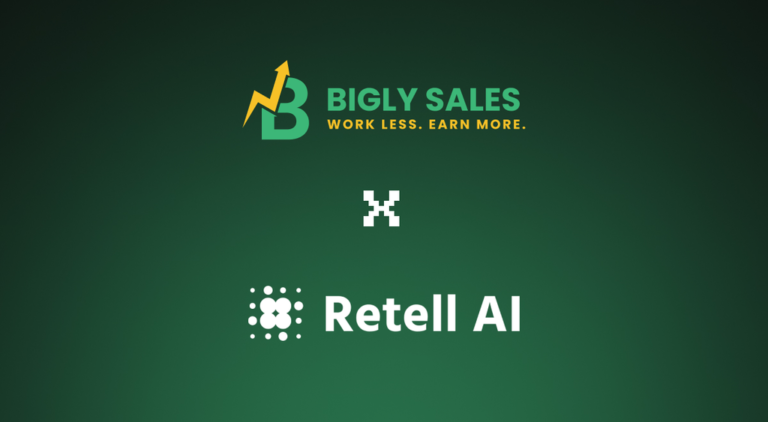Where customer expectations are higher than ever, the need for businesses to provide outstanding customer service is critical. Every interaction with a customer is an opportunity to build trust, solve problems, and reinforce your brand’s commitment to excellence. This is where an inbound call center becomes an invaluable asset.
But what exactly is an inbound call center?
What benefits does it offer, and how can you choose the right one for your business? In this extensive guide, we will dive deep into the world of inbound call centers, exploring their importance, benefits, features, and how to select the best service for your company.
What is an Inbound Call Center?
An inbound call center is a dedicated service facility that focuses on handling incoming calls from customers. These centers are primarily designed to manage various customer interactions, such as inquiries, support requests, order placements, and more.
Unlike outbound call centers, which are responsible for making calls to potential customers, inbound call centers are entirely focused on receiving and managing calls initiated by customers.
The essence of an inbound call center lies in its ability to act as the front line of customer service. Whether a customer is calling to ask a question about a product, resolve a billing issue, or seek technical support, the inbound call center is the first point of contact.
The goal is to provide immediate and effective solutions, ensuring that customers leave the interaction feeling satisfied and valued. This not only enhances customer experience but also strengthens customer loyalty, which is essential for long-term business success.
Why Inbound Call Centers Are Crucial for Businesses?
The importance of inbound call centers cannot be overstated, especially in today’s competitive business environment. Customers have more choices than ever before, and their loyalty is often determined by the quality of service they receive.
An inbound call center ensures that your customers have a direct line to your business whenever they need assistance, making it easier to maintain strong customer relationships.
One of the key reasons inbound call centers are so crucial is because they help businesses manage customer interactions efficiently. Without a structured system in place, customer calls could easily overwhelm internal teams, leading to long wait times, unresolved issues, and frustrated customers.
Inbound call centers alleviate this pressure by providing a dedicated team of trained professionals who can handle calls promptly and effectively.
Moreover, inbound call centers play a significant role in improving customer satisfaction. When customers know that they can quickly get in touch with your business and receive the help they need, they are more likely to have a positive perception of your brand.
This not only leads to increased customer retention but also encourages customers to recommend your business to others, driving new customer acquisition through word-of-mouth referrals.
Benefits of Inbound Call Centers
The benefits of inbound call centers are manifold, making them a valuable asset for businesses across various industries. One of the most significant advantages is the enhanced customer experience they provide.
By offering a dedicated channel for customer support, inbound call centers ensure that customers can easily reach out whenever they have a question or concern. This level of accessibility is crucial in building trust and loyalty among your customer base.
Another major benefit is cost efficiency. Many businesses, especially small to medium-sized enterprises, may not have the resources to maintain an in-house customer service team.
Inbound call center services offer a cost-effective alternative by allowing businesses to outsource their customer support needs. This not only reduces overhead costs but also enables businesses to scale their customer service operations without the need for significant investments in infrastructure or personnel.
Inbound call centers also contribute to improved operational efficiency. With a dedicated team handling incoming calls, your internal staff can focus on other critical tasks without being bogged down by customer inquiries.
This separation of responsibilities leads to a more streamlined workflow, faster resolution times, and ultimately, a more efficient business operation.
Additionally, inbound call centers offer access to specialized expertise. Call center agents are trained professionals with experience in handling a wide range of customer interactions.
Whether it’s providing technical support, processing orders, or resolving complaints, these agents have the skills and knowledge to address customer needs effectively. This expertise is particularly valuable for businesses that require a high level of customer service but may not have the in-house capabilities to deliver it.
Scalability is another key benefit of inbound call centers. As your business grows, so too will the volume of customer interactions.
Inbound call centers are designed to handle fluctuations in call volume, whether due to seasonal demand, marketing campaigns, or business expansion. This scalability ensures that your customer service remains consistent, even during periods of high demand.
Key Features of an Effective Inbound Call Center
An effective inbound call center is characterized by several key features that enable it to deliver high-quality service consistently. One of the most important features is multi-channel support. In today’s digital age, customers expect to interact with businesses through various channels, including phone, email, chat, and social media.
A successful inbound call center should be equipped to handle inquiries across all these platforms, providing a seamless and integrated customer experience.
Another crucial feature is advanced call routing. This technology ensures that incoming calls are directed to the most appropriate agent based on the nature of the inquiry.
For example, a customer calling with a technical issue should be connected to a tech-savvy agent who can provide the necessary assistance.
Advanced call routing not only improves the efficiency of the call center but also enhances the customer experience by reducing the time spent on hold or being transferred between agents.
24/7 availability is another feature that sets an effective inbound call center apart. In a globalized economy, customers may be located in different time zones and expect support around the clock.
Offering 24/7 service ensures that your business is always accessible, regardless of when a customer needs assistance. This level of availability can be a significant competitive advantage, particularly for businesses that serve a global customer base.
Data-driven insights are also essential for any successful inbound call center. By leveraging analytics and reporting tools, call centers can track performance metrics, customer satisfaction scores, and call resolution times.
This data provides valuable insights into the effectiveness of the call center and identifies areas for improvement. Regular analysis of this data allows call centers to optimize their operations, leading to better customer service outcomes.
CRM (Customer Relationship Management) integration is another key feature of a successful inbound call center. Integrating CRM tools allows call center agents to access customer information quickly and efficiently during interactions. This not only speeds up the resolution process but also enables agents to provide a more personalized service.
For example, if a customer has a history of recurring issues, the agent can reference this information and offer a tailored solution, enhancing the overall customer experience.
Choosing the Right Inbound Call Center
Selecting the right inbound call center for your business is a decision that requires careful consideration. The first step in this process is to clearly define your business needs.
Consider the type of support your customers require, the volume of calls you expect, and the specific expertise needed to handle these inquiries. Understanding your requirements will help you identify call centers that can meet your needs effectively.
Once you have a clear understanding of your needs, you can begin evaluating potential service providers. Look for providers with a strong reputation in your industry. A call center with experience in your specific market is more likely to understand the nuances of your business and provide a higher level of service.
Additionally, consider the provider’s track record of success. Customer testimonials, case studies, and reviews can provide valuable insights into the provider’s performance.
Cost is another important factor to consider. While it’s essential to find a provider that fits within your budget, it’s equally important to consider the value offered. The cheapest option may not always be the best choice, especially if it means compromising on service quality.
Instead, focus on finding a provider that offers a good balance of cost and quality, ensuring that you receive the best value for your investment.
Assessing the provider’s customer support is also crucial. Before committing to a call center, take the time to evaluate their customer service practices.
Are they responsive? Do they offer flexible solutions that can scale with your business? It’s important to choose a provider that aligns with your company’s values and can deliver the level of service your customers expect.
Finally, consider the security and compliance standards of the inbound call center. This is particularly important if your business handles sensitive customer information, such as financial or healthcare data. Ensure that the provider adheres to industry standards for data security and regulatory compliance, protecting your customers’ information and maintaining your company’s reputation.
Cost of Inbound Call Center Services
The cost of inbound call center services can vary significantly depending on several factors, including the level of service provided, the technology used, and the location of the call center. When evaluating the cost of inbound call center services, it’s important to consider both the direct and indirect costs.
Direct costs include expenses such as agent salaries, technology infrastructure, and operational costs. These costs can vary depending on whether you choose to outsource your inbound call center or manage it in-house. Outsourcing can often be more cost-effective, particularly for small to medium-sized businesses that may not have the resources to maintain a full-scale in-house operation.
Indirect costs include factors such as the impact on customer satisfaction and retention. A well-managed inbound call center can lead to higher customer satisfaction, which in turn can result in increased customer loyalty and repeat business.
On the other hand, a poorly managed call center can lead to frustrated customers, negative reviews, and ultimately, a loss of business. When evaluating the cost of inbound call center services, it’s important to consider these indirect costs and weigh them against the potential benefits.
Inbound Call Center Best Practices
Implementing best practices is key to maximizing the effectiveness of your inbound call center. One of the most important practices is ongoing agent training and development. Your call center agents are the face of your company, and it’s crucial that they are well-trained and equipped to handle a variety of customer interactions.
Regular training sessions not only keep agents up-to-date with the latest product knowledge and service techniques but also help them develop the soft skills necessary for effective communication and problem-solving. Investing in continuous training ensures that your agents can provide a high level of service consistently, which is critical for maintaining customer satisfaction.
Another best practice is to establish robust customer feedback loops. Collecting feedback from customers after their interactions with your inbound call center provides valuable insights into how well the center is performing. This feedback can be gathered through post-call surveys, follow-up emails, or even direct interviews.
The information collected should be analyzed regularly to identify trends, pinpoint areas that need improvement, and implement changes that can enhance the overall customer experience.
Performance monitoring and regular reviews are also essential for maintaining high service standards. By consistently tracking key performance indicators (KPIs) such as average call handling time, first-call resolution rate, and customer satisfaction scores, you can ensure that your inbound call center operates at peak efficiency.
Regular performance reviews allow you to address any issues or inefficiencies promptly, ensuring that your call center continues to meet or exceed customer expectations.
Maintaining a focus on personalization is another important best practice. Customers appreciate when their needs are understood and addressed in a way that feels tailored to them.
By using CRM tools and other technologies, your inbound call center can keep track of customer histories, preferences, and previous interactions. This enables agents to provide personalized service, which can significantly improve customer satisfaction and loyalty.
Finally, fostering a culture of continuous improvement is crucial. The customer service landscape is constantly evolving, and what works today might not be as effective tomorrow.
Encourage your inbound call center team to stay informed about industry trends, emerging technologies, and new best practices. Regularly review and update your strategies to ensure that your call center remains a leader in delivering exceptional customer service.
Conclusion
Inbound call centers are an essential component of any successful customer service strategy. They provide a vital link between your business and its customers, ensuring that inquiries, issues, and concerns are addressed promptly and effectively.
The benefits of using an inbound call center are numerous, from enhancing customer satisfaction and loyalty to improving operational efficiency and cost-effectiveness.
When choosing an inbound call center, it’s important to carefully consider your business’s unique needs, the provider’s reputation, and the key features that will support your service goals. By investing in the right inbound call center services, you can build stronger relationships with your customers, drive repeat business, and set your company apart from the competition.
Implementing best practices in your inbound call center operations will further ensure that your service remains top-notch. From continuous agent training to leveraging data-driven insights, these practices will help you maintain high standards and adapt to changing customer needs.
Ultimately, an inbound call center is more than just a service; it’s a strategic asset that can significantly impact your business’s success. By understanding its importance, recognizing its benefits, and choosing the right solutions, you can harness the full potential of an inbound call center to deliver unparalleled customer service and drive long-term business growth.








